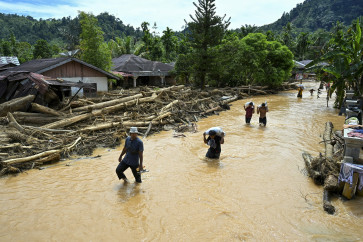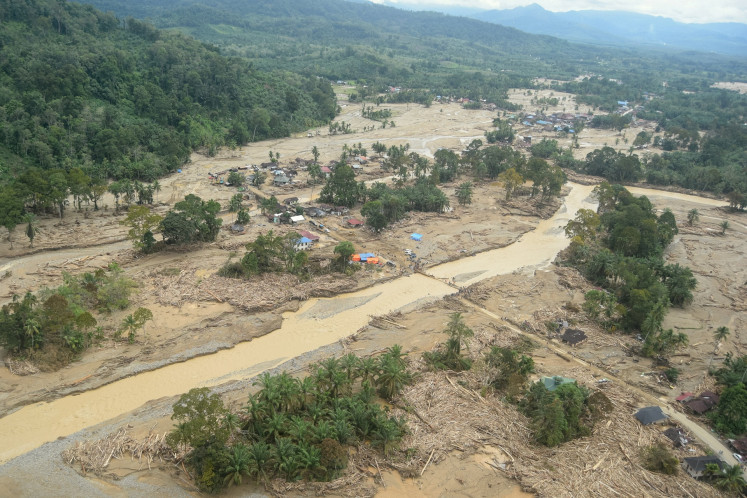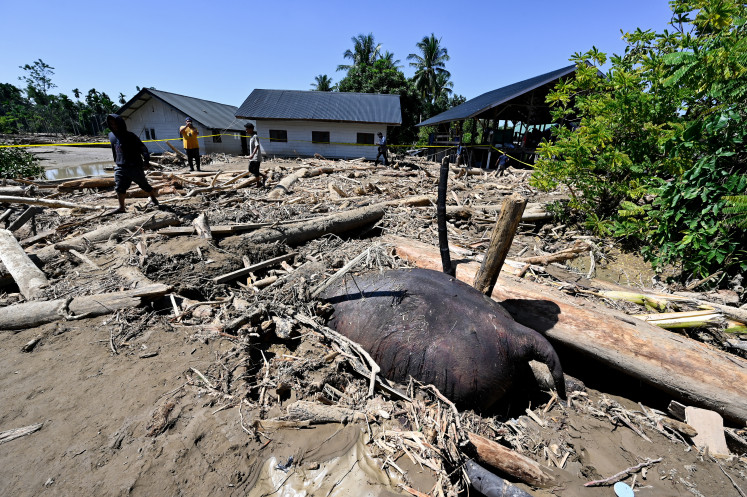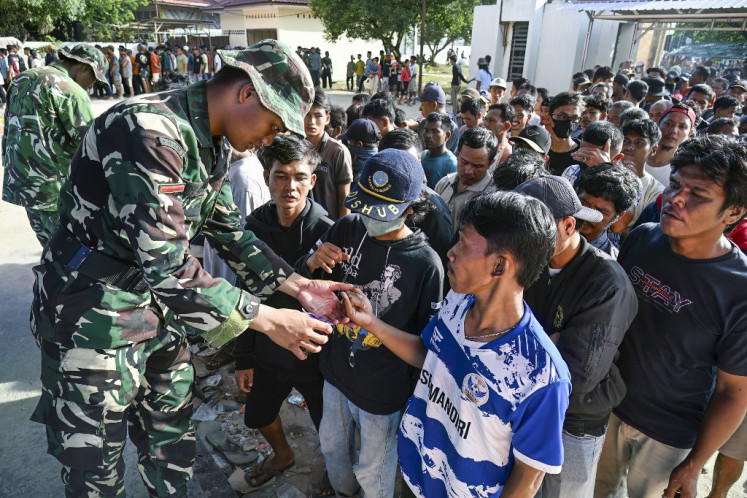Popular Reads
Top Results
Can't find what you're looking for?
View all search resultsPopular Reads
Top Results
Can't find what you're looking for?
View all search resultsRoad wrecks up on list of Bali top killers
Deaths from traffic accidents have increased in recent years, making road wrecks Bali’s No
Change text size
Gift Premium Articles
to Anyone
D
eaths from traffic accidents have increased in recent years, making road wrecks Bali’s No. 3 leading cause of death, according to an official.
“The mortality rate attributed to traffic accidents has shown a continuous significant increase, making traffic accidents the third-biggest killer after cardiovascular disease and diabetes,” Bali Health Agency chief Nyoman Sutedja said.
Traffic accidents were the eighth leading cause of death in Bali in 2006, according to statistics.
Sutedja said the traffic deaths were principally comprised of fatal head injuries suffered by motorcyclists. “This likely happens because the victims failed to use helmets.”
Traffic accidents claimed 287 lives in the first half of 2011, excluding victims who died later in the hospital, according to the Bali Traffic Police.
According to the police, 759 people were severely injured in the same period and 1,591 suffered minor injuries. Most of the victims were between 16 and 30 years old.
The isle’s traffic accident mortality rate has risen significantly every year. In 2009, the total number of people killed in accidents topped 569, with 1,012 severely injured and 1,779 suffering minor injuries.
In 2010, the total number of people killed in accidents was 606, with 1,370 severely injured and 2,448 suffering minor injuries.
Traffic accidents in Bali currently kill more people than cancer, which was ranked fourth, according to the agency.
The Bali branch of Indonesian Cancer Foundation (YKI) said the death rate due to cancer was 150 for every 100,000 patients.
Bali Traffic Police chief Sr. Comr. Syauqie Achmad said the major causes of traffic accidents were human error, poor roads, poorly maintained vehicles and bad weather.
“Human error is the leading cause of death in traffic accidents,” he said, adding that most fatal accidents involved motorcyclists who failed to use helmets properly.
“When a collision occurred, the helmet would detach from the victim’s head, causing severe injuries to the head.”
According to Syauqie, 85.5 percent of 2,441 traffic accidents recorded in Bali in 2010 involved motorcycles. Failure to obey traffic signs was also a leading cause of accidents.
More than half of the drivers found at fault in accidents — 51 percent — and 26 percent of their victims did not have driver’s licenses, according to reports.
Syauqie said the police were working on programs to reduce the traffic accident rate, such as providing traffic education training workshops to teachers from the elementary to senior high school level.
“We aim to provide traffic education for the students from an early age. In the future, we hope this subject can be incorporated into the [national] curriculum,” Syauqie said.
The police also published the Zebra Dewata monthly magazine with traffic safety information, which was available at vehicle dealers, motorcycle taxi posts and other strategic places.
A Regional Traffic Management Center (RTMC) was also launched this year to monitor Bali’s traffic 24 hours a day, using 56 closed circuit television cameras.
With the RTMC, the police hope to handle traffic jams and accidents immediately.
The police have planned to establish a Traffic Accident Center (TAC) equipped with officers, vehicles and an ambulance near several accident-prone locations to reach accident victims quickly to decrease mortality rates.










